What's happening in El Salvador, which banned Bitcoin as legal tender?
Original author: Efrat Fenigson
Original translation by: AididiaoJP, Foresight News
Last week, during my third visit to El Salvador in a year, it was clear that the country is undergoing a genuine transformation—not just theoretical talk or superficial rhetoric, but a fundamental shift in the way people live, think, build, and envision the future. The moment that brought all of this together was at a private dinner with President Nayib Bukele that I had the privilege of attending over the weekend.
I've been following his work for several years. In my podcast, I interviewed nine Salvadorans and expatriates living in the area, as well as businessmen, builders, community organizers, and ordinary citizens. A year ago, I tweeted that my dream was to meet him someday.
To my surprise, when I went up to him for a photo at the end of the dinner and said, "Hello, I'm Everat," before I could even introduce myself, he immediately responded:
"I know you, I've watched your podcast."
That moment was unforgettable because it made me feel that everything I had experienced that week was closely connected to the grand picture that was unfolding in this country.
The Three-Dimensional View of the Nation
Three events were held this week: “Regaining Health,” “Adopting Bitcoin,” and “Historic Bitcoin,” each revealing different facets of El Salvador’s development trajectory.
The "Regaining Health Symposium," led by Salvadoran physician Kenneth Fernandez-Taylor, explored the intersection of physical health and sound money. Part of the discussion focused on how imperfect money and long working hours shape stress, uncertainty, and long-term health. In this country that has regained public safety and is striving to regain economic freedom, the link between health and money seems so tangible, not abstract. Four years ago, when the world was descending into madness amid an "apocalyptic pandemic," such a health symposium, bringing together doctors, healers, and experts who pursue truth and love freedom, seemed like a distant dream. But in El Salvador, that dream is becoming a reality.
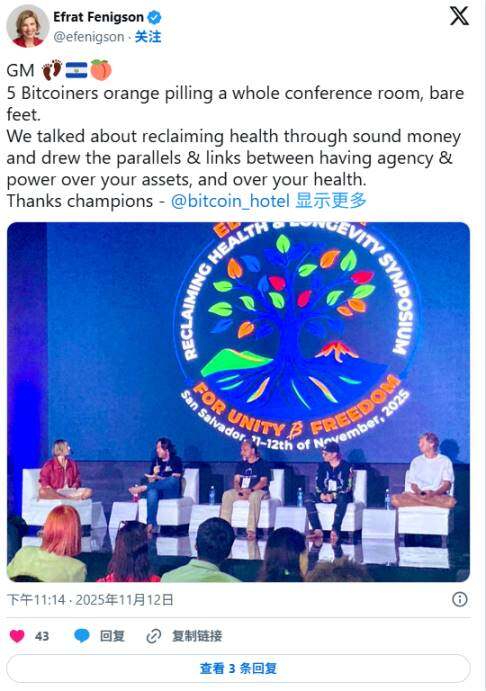
At the "Adopting Bitcoin" conference, I saw the foundational engines of this transformation. Circular economies like "Bitcoin Beach" (El Sol), "Berlin," and "MurphLife" in El Salvador vividly demonstrated what happens when people earn, spend, and save with "satoshis." Communities like "Bitcoin Babies," "Orange Women," or "La Crypta" in Argentina emphasized that Bitcoin belongs to everyone. Merchants naturally embraced Bitcoin. Children grew up in its atmosphere. "My First Bitcoin" announced a new chapter: supporting community-led Bitcoin education by providing teaching materials, frameworks, and guidance to over 70 projects in more than 40 countries. The startup zone was filled with founders who had already established offices there and started their businesses in El Salvador. I kept hearing one common theme, simple and clear: Here, you can succeed.

Image: Michael Hollomon Jr.
https://x.com/unkle_skunkle/status/1989823319093240030/photo/1
Bitcoin and El Salvador's historic moment
But the highlight of the week, and the moment that set the tone for everything, was the "historic Bitcoin" conference. This was the world's first government-led Bitcoin conference, organized by the Bitcoin Office, a pioneering initiative of the El Salvadoran government (led by Stacey Herbert and his team), and held in the National Palace and the National Theatre. These two highly symbolic landmarks made the choice of such solemn venues for the Bitcoin conference speak volumes. The halls were filled with ministers, business leaders, and international speakers; voices from the United States, Europe, Latin America, and Africa. Guests received a brochure entitled "El Salvador, the Land of Bitcoin," featuring a photograph of President Bukele on the cover, clearly indicating that Bitcoin is a national strategy here.
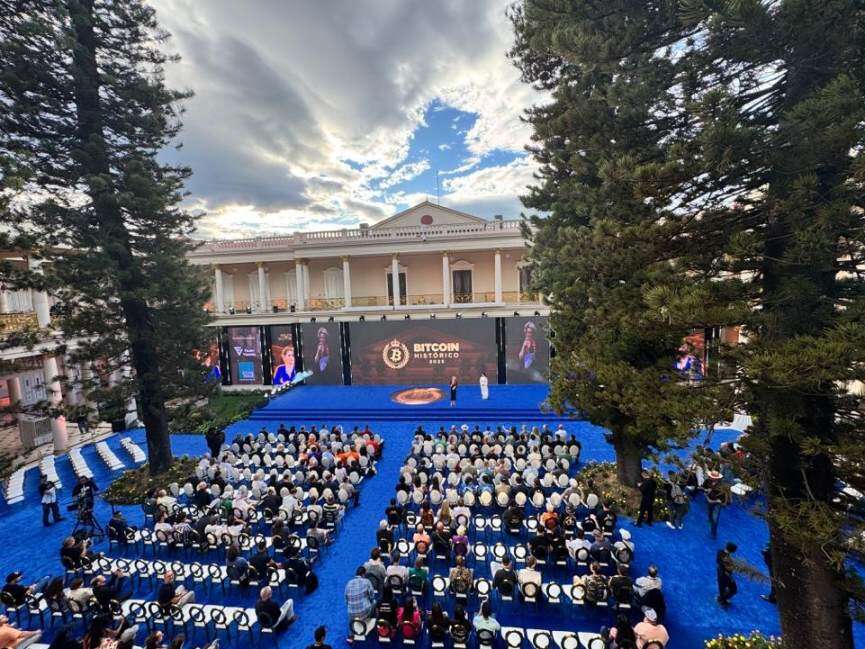
Photo: Everat Fenigersen
Outside in Gerardo Barrios Square, the meeting extended into the public space; the proceedings were translated into Spanish and streamed live to local families, students, and seniors. Shops and stalls accepted Satoshis as payment, as if Bitcoin had returned to its natural habitat, integrating into the city's daily life, and the public became part of the meeting.
Several announcements highlighted the country's direction: the Ministry of Agriculture signed a cooperation agreement with "The Beef Initiative" to strengthen local beef production. Steak 'n Shake announced that El Salvador would be its first stop in Latin America and that it would accept Bitcoin from day one.
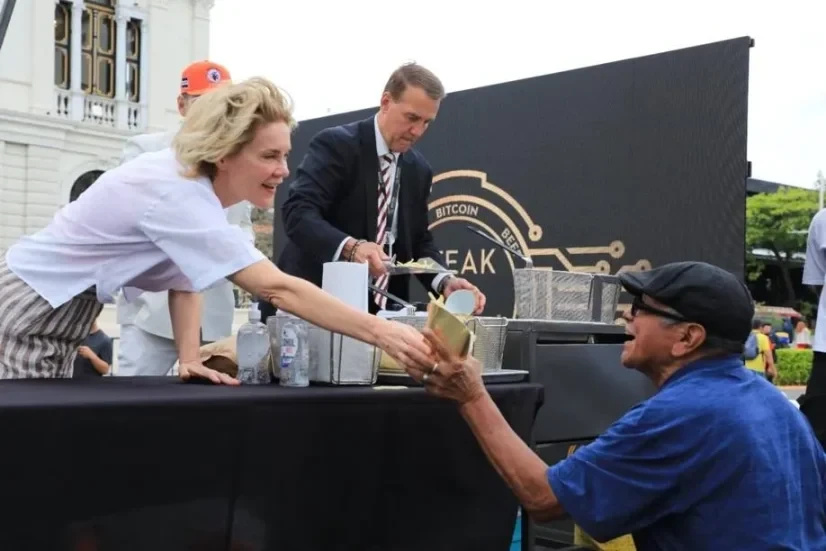
Image source: Translating El Salvador
https://x.com/TranslatingES/status/1989744516228673658/photo/4
The government announced plans to procure Nvidia B300 chips, which, with the support of Hydra Host, provide sufficient computing power to train and run advanced AI models locally. This is a step towards sovereign computing infrastructure, reducing reliance on large tech company data centers and laying the foundation for El Salvador to build its own AI capabilities domestically. Mempool, after recently securing $17 million in funding, announced its incorporation in El Salvador. With the support of Lina Cécé and the Bitcoin Office, 500 classrooms will be renovated for Bitcoin and finance education as part of the country's large-scale modernization and expansion of its educational infrastructure through the "Two Schools a Day" program. These initiatives collectively paint a coherent picture: a nation simultaneously building its future on multiple levels.
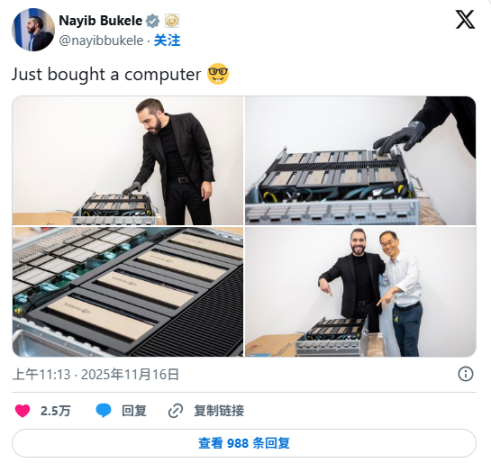
Ricardo Salinas's presence added a highlight to the historic Bitcoin conference. In his speech, he stated, "El Salvador is on the right side of history," and specifically noted the significant improvement in public safety: "(It's) safer here than in Japan. I wish my country could be like that." One of Latin America's most influential business leaders echoed the sentiments of many of this week's visitors.
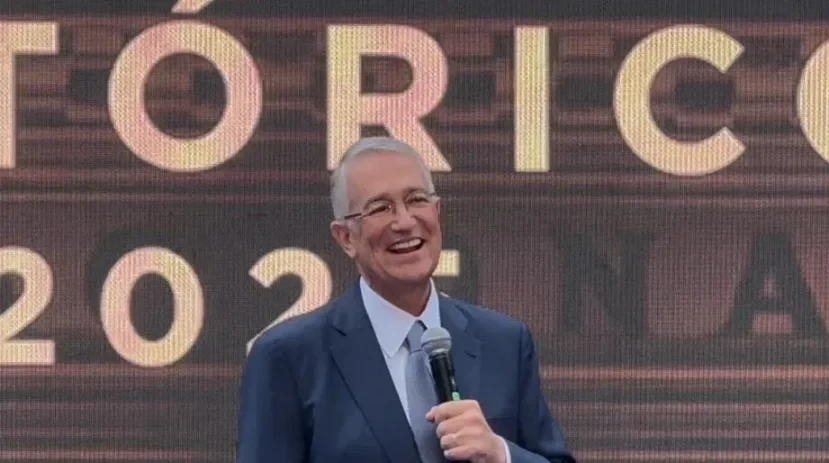
Image: Everat Fenigon
Presidential Dinner
However, the clearest window to that future was at that dinner party.
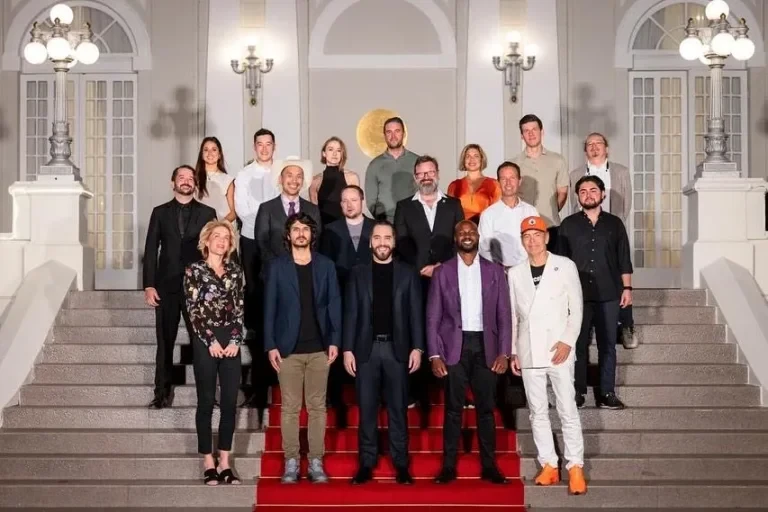
Image: El Salvador Bitcoin Office
Booker is quite different from his international cartoon image. He is sharp-witted, quick-thinking, humorous, and knowledgeable about Bitcoin culture. He joked as soon as he sat down, "Guys, it's over, Bitcoin's done for," simply because the price had fallen below $100,000 that day. He's not the kind of politician who tries to appear approachable or reads from the book; he's genuinely knowledgeable and understands Bitcoin.
When the conversation turned to Bitcoin's long-term trajectory, he said something that I'll never forget: "Bitcoin should become a currency."
It's not about investment, not about asset classes, but about currency. He clearly saw the ultimate state and understood the path to it. The communities that use Bitcoin daily are the backbone of transforming it from an idea into a functional monetary system.
His quick wit and analytical insight complemented his sharp mind perfectly. When Giacomo Zucco, director of Plan B Network, was introduced as an "anarcho-capitalist," Booker immediately responded, "It's okay, Millai and I are friends too," and continued to jokingly refer to him as "that anarchist" throughout the dinner. After Wiz presented him with a samurai sword and Giacomo offered him a bottle of rum called "The Dictator" (a lighthearted jab at the media's narrative), someone reminded him that Booker didn't drink. He immediately replied, "It's okay, I don't practice swordsmanship often either."
At the end of the dinner, Giacomo thanked him, and Bukele smiled and said a sentence that summarized his governing philosophy: "I am sorry that I run a government, but it is a very small government."
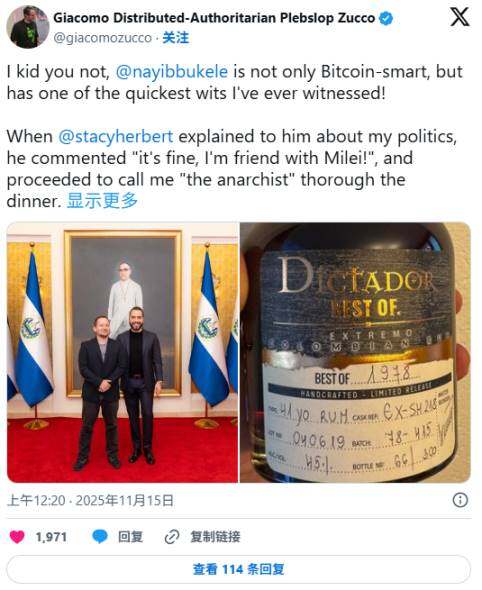
Happy Whistleblower
I have visited many countries that are sliding into a darker trajectory: more surveillance, more authoritarianism, more control, more violence. But what is happening in El Salvador is the exact opposite: safe and unoppressive, well-structured yet not suffocating, free yet with a sense of responsibility. After decades of ravages by violent gangs, Salvadorans feel liberated. You can see it on their faces: they are friendly, relaxed, and grateful. On my last trip, I saw a 75-year-old man whistling as he cycled through El Sol at sunrise. "When do people whistle?" I asked myself. "Happy people whistle. People whistle when they feel safe." That simple moment became a silent metaphor for this place in my mind.
Yes, this country still needs to deal with global institutions such as the International Monetary Fund. The recent decision to abolish Bitcoin's fiat currency status is indeed regrettable, but after seeing the underlying reality, it feels like taking one step back while advancing four. Progress is certainly not always smooth sailing. But the direction is undeniable: moving towards monetary sovereignty, digital sovereignty, educational sovereignty, and civic sovereignty—all forces are pushing in the same direction.
This week has given me a glimpse into a country that is reinventing itself.
While most countries in the world are struggling with economic, security, and fragile social structures under the influence of the global agenda, El Salvador is changing its own reality and entering a new timeline.
Meeting with Bukele felt less like meeting a president.
It was more like meeting an architect determined to liberate his country and pave the way for it.
- 核心观点:萨尔瓦多正通过比特币实现国家转型。
- 关键要素:
- 政府主导比特币会议,确立国家战略。
- 商家普及比特币支付,构建循环经济。
- 推动比特币教育,强化主权基础设施。
- 市场影响:增强比特币采用信心,推动主权货币实践。
- 时效性标注:中期影响。



